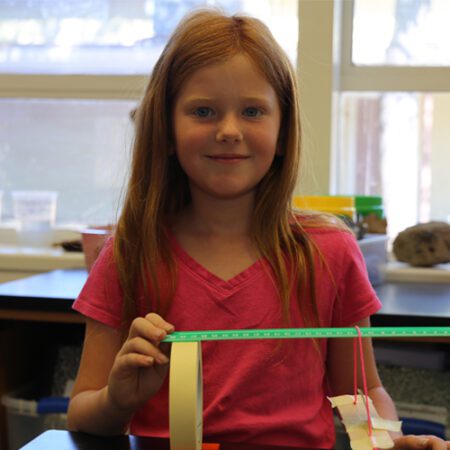NTN Insights and Resources
Browse our library of school and district spotlights, insights, and resources to learn more about the NTN Model and our work with schools across the country.

Topic: NTN Tools and Frameworks
Our Network Resources and Tools What Are Project-Based Learning (PBL) Assessments? The goal for assessment in PBL is for learners to apply knowledge and solve complex problems while developing essential skills. Educators need assessments that give them accurate information about...
Topic: Elementary, High School, Middle, NTN Tools and Frameworks
Our Network Resources and Tools 10 Engaging Examples of Project Based Learning (PBL) Project-based learning (PBL) is an inquiry-based approach that immerses students in real-world applications and provides students the opportunity to develop 21st century skills like critical thinking, communication...
Topic: NTN Tools and Frameworks
Our Network Resources and Tools Project-based learning (PBL) is an inquiry-based and learner-centered instructional approach that immerses students in challenging, authentic problems involving their community which requires a deep application of content knowledge. High-quality, relevant project-based learning (PBL) is the...
Topic: Midwest
Listen to NTN Unpacked In this thought-provoking episode of NTN Unpacked, we dive into the rapidly evolving world of artificial intelligence (AI) in education with veteran educator Jason Currie-Olson from Washington High School in Sioux Falls, South Dakota. Joined by...
Topic: Texas
Listen to NTN Unpacked In this inspiring episode of NTN Unpacked, our very own School Development Coach Val Grijalva sits down with Ashley Perales and Henley Price, two pre-K teachers from Gale Pond Alamo Elementary School in Odessa, Texas, who...
Topic: NTN Tools and Frameworks, West
Listen to NTN Unpacked Welcome to the debut episode of NTN Unpacked, the podcast where we bring you the authentic stories of transformation from across the New Tech Network. Hosted by Mark Stolan, this first episode features a special interview...
Topic: NTN Tools and Frameworks
Our Network Resources and Tools Project Based Learning Activities for Elementary Schools Project-based learning (PBL) is an inquiry-based and learner-centered instructional approach that immerses young learners in authentic learning and real-world projects that foster critical thinking skills. Project-based learning curriculum...
Topic: NTN Tools and Frameworks
Our Network Resources and Tools Access the Kindergarten Project Snapshot What is Project-Based Learning (PBL) for Kindergarten? Project-based learning (PBL) is an inquiry-based and learner-centered instructional approach that immerses young learners in authentic learning and real-world projects that foster critical...
Topic: NTN Tools and Frameworks
Topic: NTN Tools and Frameworks
Our Network Resources and Tools Guide to Project Planning Toolkit [+ PBL Template] Get a Copy of the Project Planning Toolkit Understanding the Basics of a PBL Lesson Plan Project-Based Learning (PBL) planning and design stands apart from traditional lesson...
Topic: NTN Tools and Frameworks
Our Network Resources and Tools Scaffolding in Teaching: Supporting Student Success Through Project-Based Learning What is Scaffolding in Teaching? Have you launched a project and noticed some students struggling to keep up with new content or skills? How do you...
A key focus area in the New Tech Network Model is college and career ready outcomes that prepare each student for postsecondary success with the knowledge, skills, and mindsets to be ready for college and career. The NTN Student Learning...


